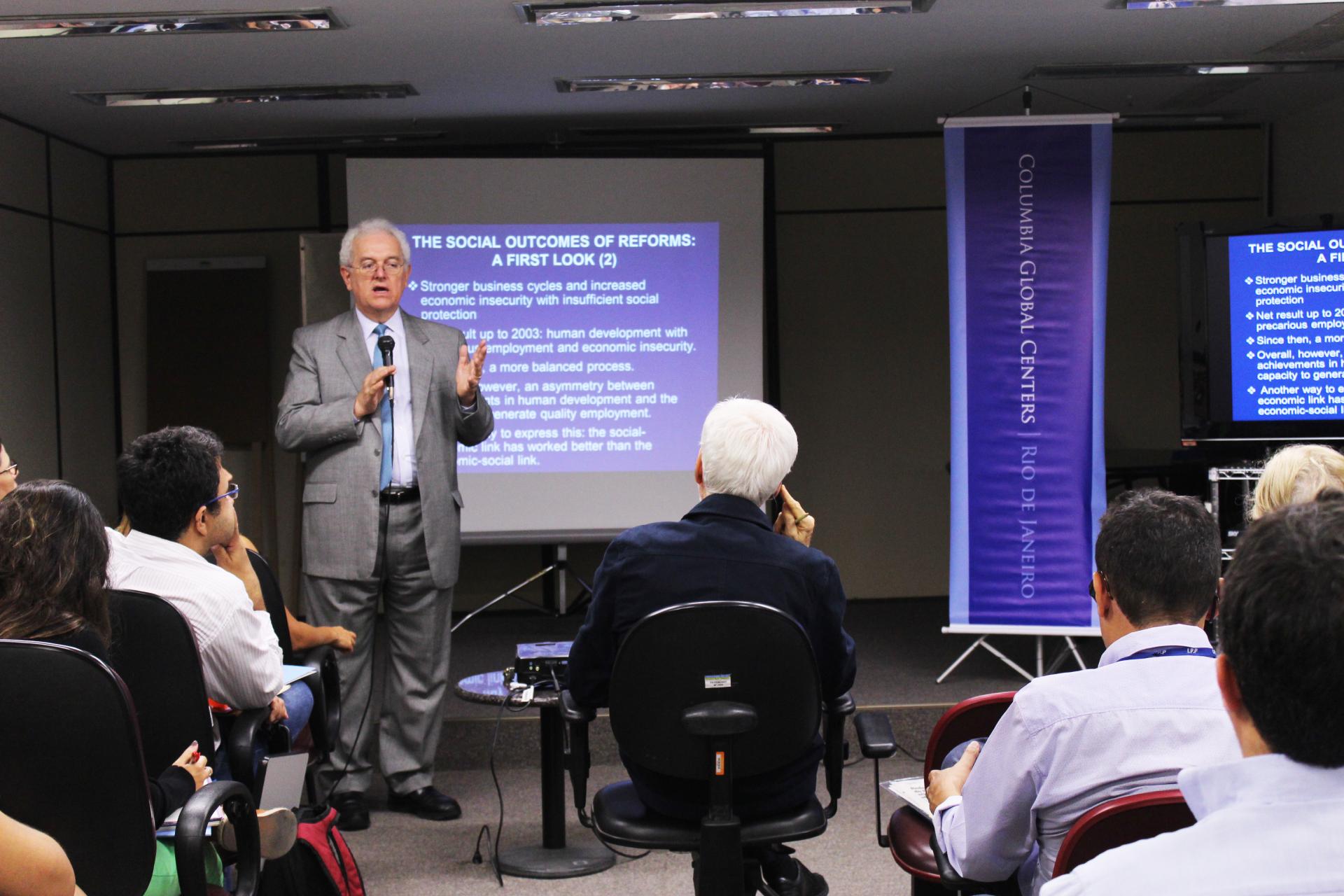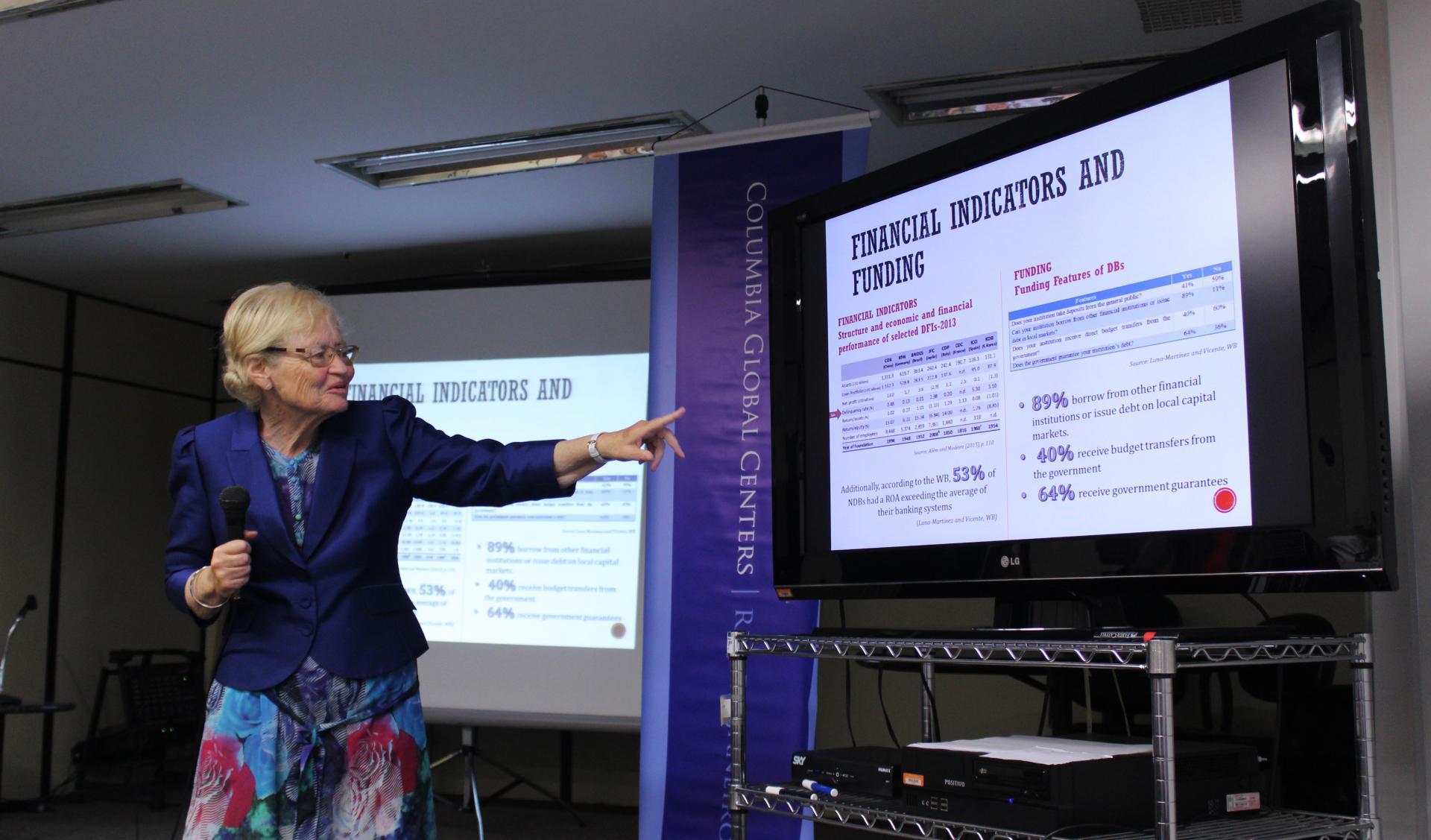On Wednesday, 14, Columbia University Professor and former United Nations’ Deputy Secretary-General for Economic and Social Affairs, José Antonio Ocampo, and Finance Director of the Initiative for Policy Dialogue (IPD), Stephany Griffith-Jones, discussed social policies and their roles in the pursuit to reduce inequality in an event at Instituto Pereira Passos (IPP) in Rio de Janeiro.
In his introduction speech, Professor Ocampo emphasized that assistance programs are necessary, but they are not a substitute for a basic social policy. According to him, the asymmetry between labor market and human development is an issue that still needs to be dealt with, as well as a better way to manage the negative effects of the economic slowdown and recession. Ocampo pointed out that universal social programs should be expanded and that the redistribution of fiscal policy should be increased in order to reduce poverty and inequality.
Columbia’s Professor affirms that social policies must be thought taking three very important facts into consideration: the differences between public and private initiatives; targeting policies and universal policies; and the informality scenario.

